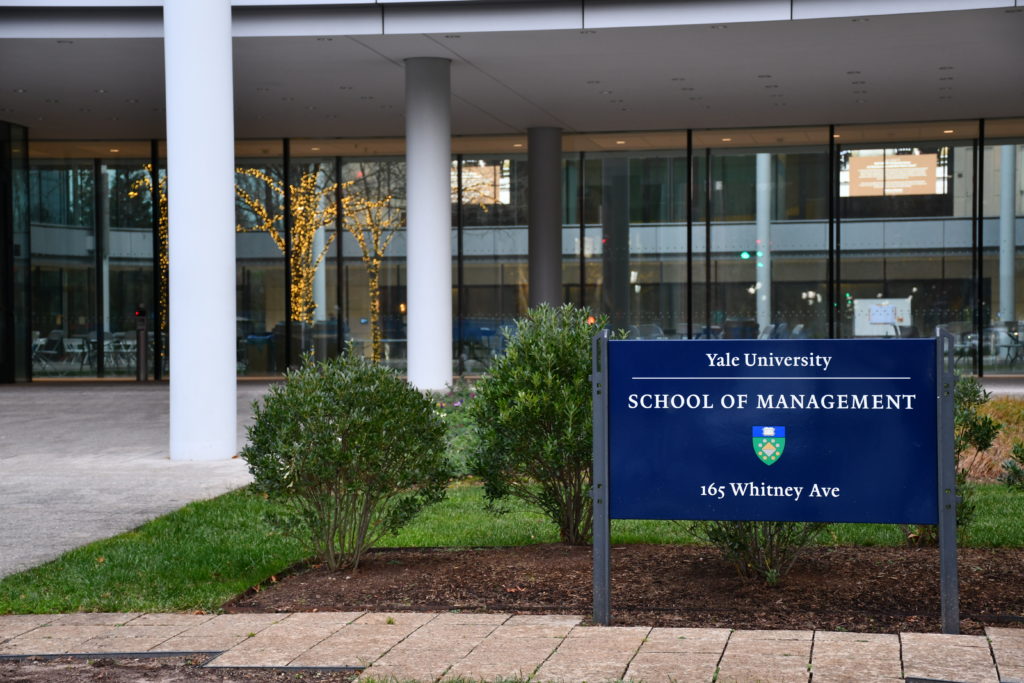
SOM professor updates viral list of Russian-affiliated companies
The list of more than 450 companies now includes five levels of business involvement with Russia.
Charlotte Hughes
12:53 a.m., March 28, 2023
Staff reporter
Yale Daily News
Yale School of Management Professor Jeffrey Sonnenfeld’s viral list of US companies that have severed ties with Russia has been updated to show which companies have severed ties with the country altogether – and which have left open the possibility of return.
After Russia invaded Ukraine on Feb. 24, Sonnenfeld, a corporate social responsibility advocate, compiled a list of companies that had severed ties with Russia — and those that hadn’t. made. Now, with complex corporate PR campaigns and varying degrees of involvement in Russia, Sonnenfeld and his team of SOM researchers have updated the list to include five degrees of corporate involvement in Russia. Categories include “Withdrawal,” denoting an absence of corporate operations in Russia; “Suspension”, meaning a temporary cessation of operations in Russia; “Scaling Back”, reflecting a decrease in operations in Russia; “Buying Time”, denoting a postponement of new operations in Russia; and “Digging In”, indicating a continuation of typical operations in Russia.
“Initially, we wanted to distinguish the companies that genuinely restrict their operations from the PR-soaked pretenders and the stubborn set of those who simply remain [in Russia],” Sonnenfeld wrote in an email to The News. “However, clever public relations platoons have always created smokescreens, blurring those who have really retired permanently or suspended operations from those who were making cosmetic moves that we legally had to recognize but were, in reality, without consequence for the Russian economy.”
Sonnenfeld’s original list had an “unexpected catalytic effect” by praising the companies that were the first to sever ties with Russia while giving a point of comparison to CEOs hoping to sever ties with Russia but facing setbacks. cautious boards, he added. He reached the pages of New York Times, Washington Post and Fortune.
Companies that hoped to do business quietly in Russia have been “kicked off our list by the spotlight of public attention,” Sonnenfeld said.
Sonnenfeld believes that corporate America has a moral responsibility to enact “trade lockdowns” that deeply affect civil society, he said. It is “the only way to defeat a bloodthirsty tyrant without war”, he argued.
On March 16, Ukrainian President Volodymyr Zelensky urged the US Congress to apply additional sanctions against Russia.
“All American companies must leave [the Russian] walked immediately because it is drenched in our blood,” Zelensky said in a video address to Congress.
Sonnenfeld’s list includes 174 companies classified as having completely halted Russian engagements and left Russia – including numerous oil companies, professional services firms and technology firms, such as BlackRock, Deloitte and Apple.
According to Sonnenfeld and his research team, 195 companies temporarily reduced operations, but kept return options open.
A total of 31 companies on the list have reduced their business activities while continuing some other operations. Goldman Sachs and JP Morgan are ending their operations in Russia but buying Russian debt, according to the published list.
“Goldman Sachs is ending its operations in Russia in accordance with regulatory and licensing requirements,” a spokeswoman for the bank said. Recount CNBC. “In our role as a market maker between buyers and sellers, we help our clients reduce their risk on Russian securities that are traded on the secondary market, without seeking to speculate.”
According to the list, 56 companies are postponing planned future investments, development and marketing while continuing their “background activities”. Hilton and Marriott, for example, suspended new investments and closed their headquarters, but their hotels, mostly managed by third-party groups, continue to operate in Russia.
Finally, 42 companies are defying requests to exit or reduce their activities. Koch Industries is included in this category. A declaration signed by Koch COO Dave Robertson said the company would continue to operate its two Russian glass facilities owned by Guardian Industries, a company acquired in 2017. According to Robertson, closing the facilities “would only put our employees at risk and doing more harm than good. »
“still others [companies] are cynically trying to drape their cowardice and greed with concepts of humanitarian services, nutritional necessities and concern for innocent long-term Russian employees – missing the fundamental purpose of these economic measures as an urgent and last-ditch effort to prevent a catastrophic World War III,” Sonnenfeld said.
Data for the listing comes from company website announcements and public statements, financial regulatory filings with the SEC, documented mainstream media coverage at multiple anchors, analysts from the industry, FactSet and other databases, Bloomberg and a Wiki-style network of 200 company insider whistleblowers.
Jeffrey Sonnenfeld is the founder and CEO of the Chief Executive Leadership Institute.

Comments are closed.